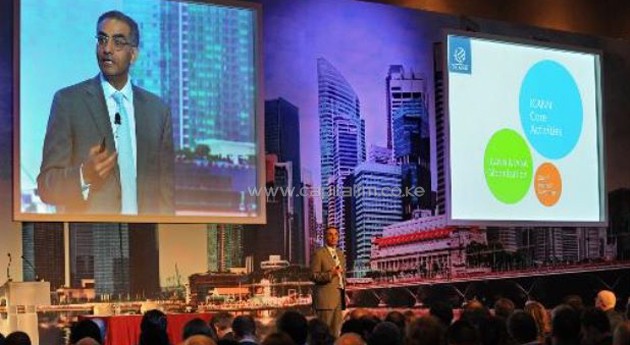In a London hotel, over 3,300 technicians, government representatives, academics and members of the domain name industry gathered this week for the largest ever meeting of the powerful body that runs the Internet’s key infrastructure: the Internet Corporation for Assigned Names and Numbers (ICANN).
Its name is one of numerous acronyms that can make the world of the Internet’s managing forces seem impenetrable to outsiders.
But its policies are of enormous importance, deciding what addresses like .com, .org or .fr exist, and who has the right to use them.
Over the last two years, ICANN has overseen the highest ever expansion of these generic Top-Level Domains — it awarded .catholic to the Vatican, but opted to give .amazon to the South American region rather than the online business.
It must balance the demands of myriad corporations, interest groups and governments, eking out compromises to ensure the system sticks to one set of rules and does not split into regional ‘internets’.
To this end, ICANN is trying to transform itself from an institution overseen by the US government into a globally representative body — and some say now is the time to change how it is run.
“ICANN’s procedures highlight its inability to take into account the legitimate concerns of states,” the French delegation to ICANN said in a statement Wednesday.
“Today ICANN is not the appropriate forum to discuss Internet governance.”
The attack followed a standoff over the .wine and .vin domains, which France believes should be legally protected, in a similar way to how the European Union limits who can use the drink label ‘Champagne’.
ICANN’s leadership dismisses the French characterisation that it is opaque and lacks accountability, contending that it is a pioneer in transparency that needs little advice from governments.
“When I prepare a draft budget, let alone a draft plan, even before it’s vetted by my leaders it’s put on the Internet for anyone to comment on,” said Jean-Jacques Sahel, ICANN’s Vice President of Stakeholder Engagement for Europe.
“Tell me what corporation, international organisation or government consults on its draft budget and draft plans at such a detailed level?”
– Strange contraption –
ICANN’s complex and unusual structure grew out of the peculiarities of the early Internet, when its core job was done by just one man: Jon Postel, a California computer scientist known as the ‘God of the Internet’.
“It’s a strange contraption. It’s a private corporation but it’s making public policy,” said Milton Mueller, a professor at the Syracuse University School of Information Studies who has worked in ICANN’s decision-making process.
“It’s like what Winston Churchill said about democracy — it’s the worst system apart from all the others.”










































